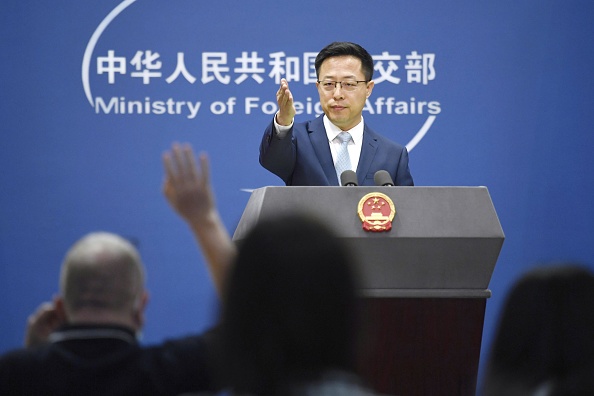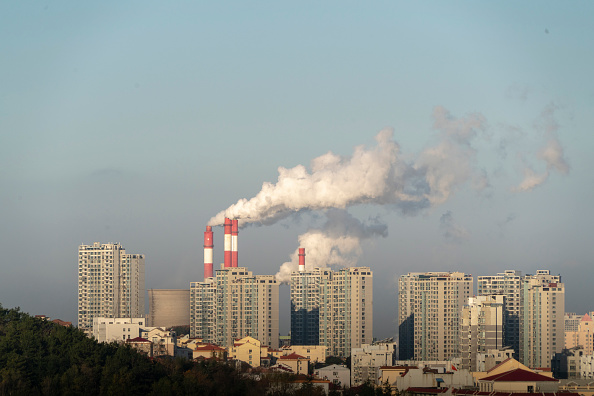
 The Trade Game
The Trade GameThe Biden administration is considering proposals for a digital trade agreement with countries in the Indo-Pacific in an effort to check China's influence in the region. While official details haven't been released, the deal is expected to set out regulations for the digital economy, including rules on the use of data, trade facilitation, and electronic customs arrangements. Singapore, New Zealand, Australia, Malaysia, Japan, Chile, and Canada will likely be invitees to the trade agreement.
Chinese state media outlets have condemned Washington's role in the discussions, stating that the plans are an attempt to safeguard U.S. tech companies and "invariably serve the U.S.' bid to defend its hegemony." At a news briefing on Tuesday, Chinese Foreign Ministry Spokesman Zhao Lijian emphasized China's stance that the possible agreements would "violate laws of economy and the shared aspirations of countries in the region."
While the deal won't need Congressional approval, the Biden administration must align the proposal with its "worker-centred trade policy." The deal signals a renewed strategic approach in the region, following former President Donald Trump's withdrawal from Trans-Pacific Partnership trade deal negotiations in 2017.
 Burning Coal
Burning CoalA heat wave sweeping across Southern China has propelled electricity demand to record-breaking highs in the past month. Covering some of China's most industrialized provinces, residents are burning through coal at unprecedented levels, and the demand for coal has led to the government releasing over 10 million tonnes out of its reserves to meet demand and mitigate rising costs. This will be the fifth time China has dug into its coal reserves this year, and China's central planner is encouraging fuel sources and transport hubs to increase reserves. Energy usage compared to July 2020 is already 12% higher.
Although China has pledged to cut carbon emissions drastically, China's primary source of electricity is still coal. This summer's spike in energy usage will most certainly constitute a setback in China's pursuit of carbon neutrality in 2060. Despite the new highs in energy usage, Chinese officials are pushing out new emissions-trading regulations and have presented new plans with the European Union to limit emissions, which will increase costs for both industries and consumers. These moves show urgency in regulating emissions from some of the world's largest producers of carbon, though they're still months to years away from implementation.
 Rocky Seas
Rocky SeasOn Sunday, U.S. Secretary of State Anthony Blinken reaffirmed a 70-year-old mutual defense treaty that promises the U.S.' commitment to defend the Philippines' armed forces from an attack in the South China Sea. The affirmation comes as accusations by the Philippines' that China has sent out its "maritime militia" to drive out its fishing boats and intimidate coast guard vessels have increased tensions in the South China Sea this year.
Blinken also said China must "take steps to reassure the international community that it is committed to the rules-based maritime order that respects the rights of all countries, big and small."
Blinken's comments marked the fifth anniversary of the Permanent Court of Arbitration's ruling that rejects Beijing's extensive territorial claims over the area, finding that China infringed on Philippine sovereignty. Beijing has vehemently rejected the ruling, and has continued to build up their military presence in the South China Sea, claiming the increased presence of the U.S. and other nations is violating Beijing's sovereignty and the source of elevated tensions.
With disputes heating up, Philippine Defense Secretary Delfin Lorenza also stressed that being responsible stewards of the environment must come before conflicting claims and state interests.
Prepared by China-US Focus editorial teams in Hong Kong and New York, this weekly newsletter offers you snap shots of latest trends and developments emerging from China every week, while adding a dose of historical perspective.
- 2021-07-09 Existential Threats
- 2021-07-01 Centenary Celebrations
- 2021-06-25 Critical Crossroads
- 2021-06-18 Part of the Club
- 2021-06-11 Retaliatory Legislation
- 2021-06-04 "Defanging" Diplomacy
- 2021-05-28 The End of an Era?
- 2021-05-21 One Step Forward, One Step Back
- 2021-05-14 Drifting Trade Ties
- 2021-05-07 Time to Talk
- 2021-04-30 Academic Pandemic
- 2021-04-23 Carbon Cutting
- 2021-04-16 A Hopeful Climate
- 2021-04-09 Technological Frontiers
- 2021-04-02 Back to Basics
- 2021-03-26 The Biden Era
- 2021-03-19 “A Strong Smell of Gunpowder and Drama”
- 2021-03-12 Bridging the Divide
- 2021-03-05 A Tale of Two AI Superpowers
- 2021-02-26 Changing of the Guard
